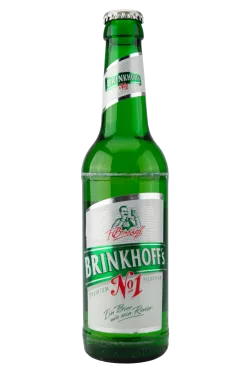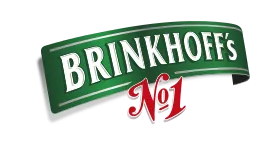Brinkhoffs
Dortmund thinks in terms of territorial lines. Each district is a small world – places with its own language, its own rhythm, its own codes. Between the Westfalenstadion, the Phoenix Stadium, and the harbor, there are a whole series of territories that are colorful, diverse, and unique. Every neighborhood has its attractions and focal points: kiosks, markets, pubs, and breweries that create a sense of community and are magnetic points of attraction. Beer is the glue that connects districts across the city and captures the character of a city in the most delicious way. In Dortmund, this beer comes from the Brinkhoff brewery. It combines what is valued in all districts: reliability, recognizability, and excellent beer in the glass.
Beer enthusiast from the beginning
In 1848, Fritz Brinkhoff was born into a malting family in Bochum-Harpen. He learned the brewing trade and began his career at the Löwen Brewery in Dortmund. He was one of the first in Dortmund to promote the pale beer style, even selling his product himself. In 1870, financially strong partners joined the company, forming Dortmund's Union-Brauerei AG in 1873. Output grew rapidly. 1887 marked a pivotal year in the brewery's history: A pale beer accidentally reached a customer in Aachen and was a huge success. Brinkhoff's No. 1 found its way into the core product range and became the brewery's flagship product. In the first half of the 20th century, the brewery achieved significant volumes, survived war damage, rebuilt, became the first German brewery to reach the million-beer mark again in 1956, and celebrated its centenary in 1973. In 1981, the street near the factory was named after Fritz Brinkhoff as a tribute to him. In 1990, national advertising began, further increasing sales figures and leading to a move to Lütgendortmund in 1994. In 2002, the company officially began marketing its products under the name Brauerei Brinkhoff. In 2004, Brinkhoff was integrated into the Radeberger Group and shortly thereafter introduced a mixed drink. The company entered into a partnership with Borussia Dortmund (BVB) and, due to popular demand, introduced an alcohol-free segment. The constant throughout the company's rapid history has been good, honest, and down-to-earth beer.
The golden trio of Brinkhoff's brewing art
The range is streamlined and clearly structured. Brinkhoff's No. 1 is the flagship: a light, tart delight, still brewed today according to Fritz Brinkhoff's original recipe. The drink is straw-gold in color, finely sparkling, and combines sunny grain, fresh bread crust, and a clean hop note. The Premium Pilsner scores with cool herbal notes, citrus zest, and a clean, lingering bitterness. It's not for nothing that it's Brinkhoff's most popular beer. The non-alcoholic version is equally straightforward, combining a feather-light 0.0% alcohol content with a robust flavor and authentic character. A sparkling, fruity shandy rounds out the lineup and completes the small but fine range.



